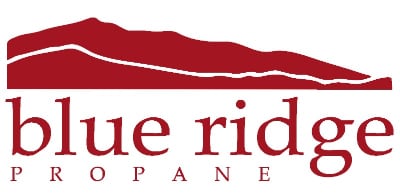10 Things You Can Do To Keep Your Family Safe During Winter Storms
Taking these 10 simple steps can help promote safety all season long. With a little advance planning, you and your family can be prepared for severe weather events such as winter storms. For additional information on preparing for winter storms and other severe weather conditions and natural disasters, contact your propane supplier or visit Propane.com/Safety.
Make sure you have an adequate propane supply. Discuss with your propane supplier the possibility of scheduling regular winter visits so that you always have an adequate supply of propane in your tank. This will avoid running empty in times of heavy snowfall when roads may be inaccessible for delivery.
Mark the location of your tank with a flag, pole, or stake that is higher than the average snow cover depth for your location. Contact your local weather bureau if you need data for your area. If you already have markers, make sure they are planted firmly and highly visible. These markers will help you avoid plowing or shoveling rooftop snow on top of your tank. Should your tank become covered with snow, use a broom to clear it.
Make sure your heating system and appliances are running efficiently. Before the start of each heating season, have a qualified service technician inspect and service your appliances and propane system. This will ensure that your appliances are running as efficiently as possible, conserving fuel and saving dollars.
Create an emergency preparedness plan and review it with everyone in your family. Post a list with contact information for your propane supplier and emergency services (fire department, etc.) along with instructions for turning off propane, electricity, and water. If you do need to turn off your propane, contact a service technician to inspect your propane system prior to turning it back on.
Prepare a family disaster supply kit with several days’ worth of water and canned foods along with a can opener, extra clothes and blankets, flashlights, and batteries. Include a battery-powered NOAA weather radio so you can stay informed as conditions change. Make sure to keep rock salt, firewood, and snow-removal equipment accessible from inside.
Check your chimneys, flue pipes, vent connectors, and propane tank for damage, blockage, or debris caused by snow and ice. Use a broom rather than a shovel, and clear these areas frequently. This will help reduce the possibility of carbon monoxide (CO) poisoning due to blocked or damaged chimneys, flues, and vents.
Consider installing UL-listed propane gas detectors and CO detectors. These detectors provide you with an additional measure of security. Be sure to follow the manufacturer’s instructions regarding installation, location, and maintenance.
After the storm passes and it is safe to do so, check the entire area for downed power lines, damaged gas lines, or damage to your propane tank. Immediately call your local utility company or propane supplier if any of these hazards exist. Do not attempt repairs yourself. Proper ventilation is necessary for their safe operation, and CO fumes emitted can be lethal. Only use appliances indoors that are designed and approved for indoor use.
Never store, place, or use a propane cylinder indoors or in enclosed areas, particularly in the event of a power outage. Proper ventilation is necessary for their safe operation, and CO fumes emitted can be lethal. Only use appliances indoors that are designed and approved for indoor use.
Exercise sound judgment. As with any challenging situation, your composure during winter storms will ensure you don’t take unnecessary risks or pose any additional dangers to your family and home. Stay calm; use radios, television, and telephones to stay informed and connected. Remember, winter storms can last several days and roads may be inaccessible for fuel delivery. Conserve fuel by keeping thermostats down to 65° during the day and 55° at night, and close off any rooms that don’t need to be heated. If any questions arise, contact Blue Ridge Propane or your local fire department.



